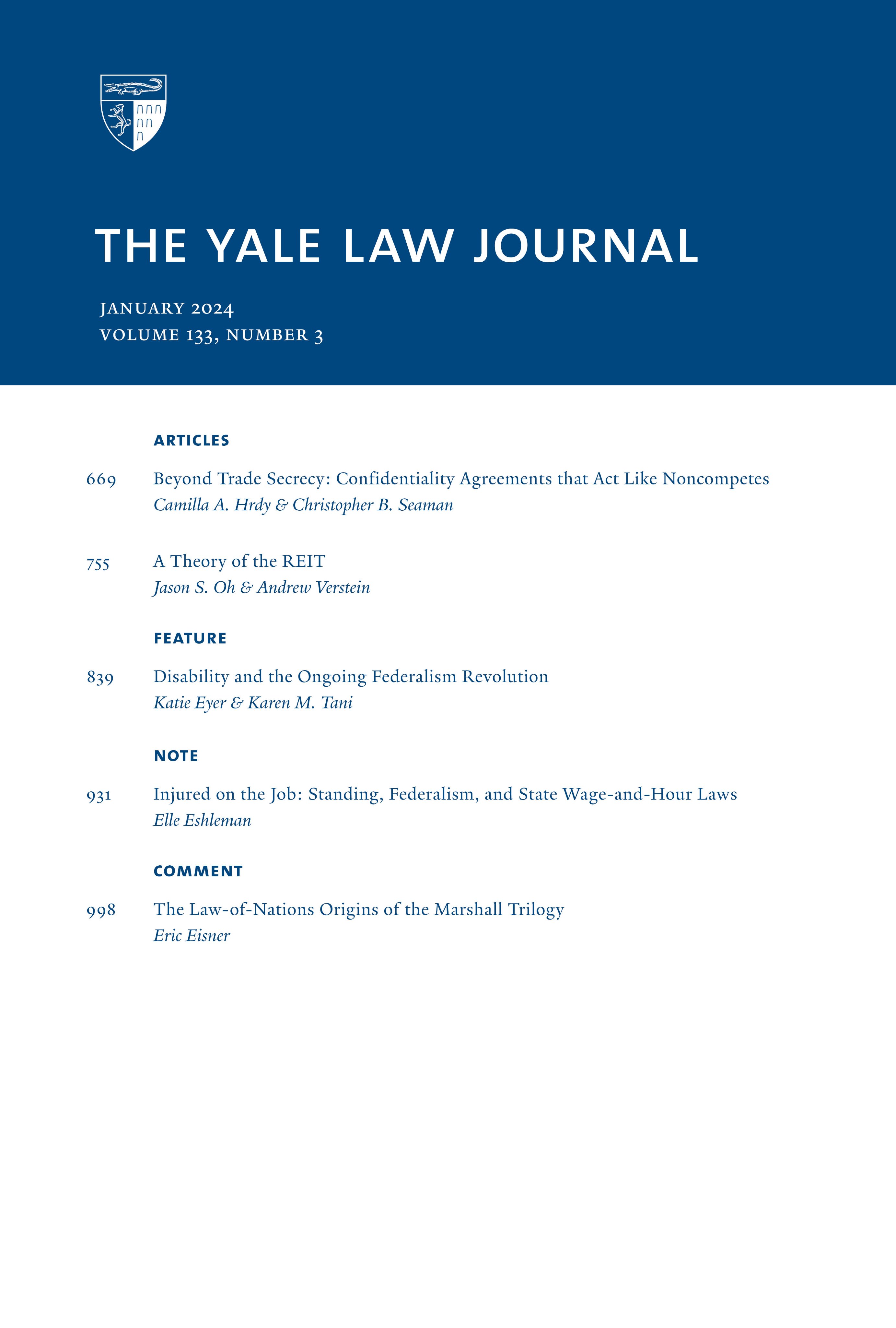Defining and Punishing Offenses Under Treaties
IF 5.2
1区 社会学
Q1 LAW
引用次数: 0
Abstract
One of the principal aims of the U.S. Constitution was to give the federal government authority to comply with its international legal commitments. The scope of Congress’s constitutional authority to implement treaties has recently received particular attention. In Bond v. United States, the Court avoided the constitutional questions by construing a statute to respect federalism, but these questions are unlikely to go away. This Article contributes to the ongoing debate by identifying the Offenses Clause as an additional source of Congress’s constitutional authority to implement certain treaty commitments. Past scholarship has assumed that the Article I power to “define and punish...Offences against the Law of Nations” is limited to customary international law. But the Framers of the Constitution understood the law of nations to include both custom and treaties, or what they called “the conventional law of nations.” The history and purpose of the Offenses Clause show that it was intended to reach treaties and — despite the prevailing view in the academy — that Congress and the Supreme Court have shared this understanding of the Clause through most of our nation’s history.界定和惩罚条约下的罪行
美国宪法的主要目的之一是赋予联邦政府遵守其国际法律承诺的权力。国会执行条约的宪法权力范围最近受到特别关注。在Bond v. United States案中,最高法院通过解释一项尊重联邦制的法规,避免了宪法问题,但这些问题不太可能消失。本文通过将“犯罪条款”确定为国会履行某些条约承诺的宪法权力的额外来源,对正在进行的辩论做出了贡献。过去的学术假设第一条有权“定义和惩罚……”“违反国际法的罪行”仅限于习惯国际法。但制宪者认为国内法既包括习惯也包括条约,即他们所说的“国内法”。犯罪条款的历史和目的表明,它的目的是达成条约,而且——尽管学术界普遍持这种观点——国会和最高法院在我国历史的大部分时间里都对该条款有共同的理解。
本文章由计算机程序翻译,如有差异,请以英文原文为准。
求助全文
约1分钟内获得全文
求助全文
来源期刊

Yale Law Journal
LAW-
CiteScore
4.50
自引率
6.20%
发文量
0
期刊介绍:
The Yale Law Journal Online is the online companion to The Yale Law Journal. It replaces The Pocket Part, which was the first such companion to be published by a leading law review. YLJ Online will continue The Pocket Part"s mission of augmenting the scholarship printed in The Yale Law Journal by providing original Essays, legal commentaries, responses to articles printed in the Journal, podcast and iTunes University recordings of various pieces, and other works by both established and emerging academics and practitioners.
 求助内容:
求助内容: 应助结果提醒方式:
应助结果提醒方式:


